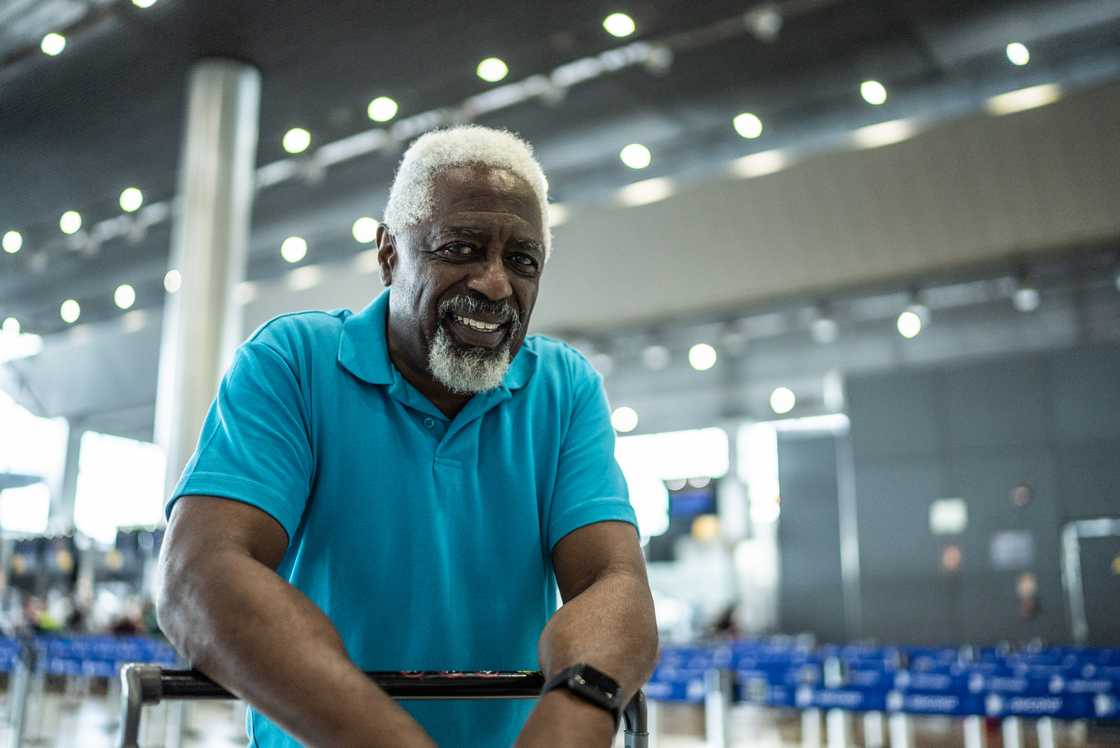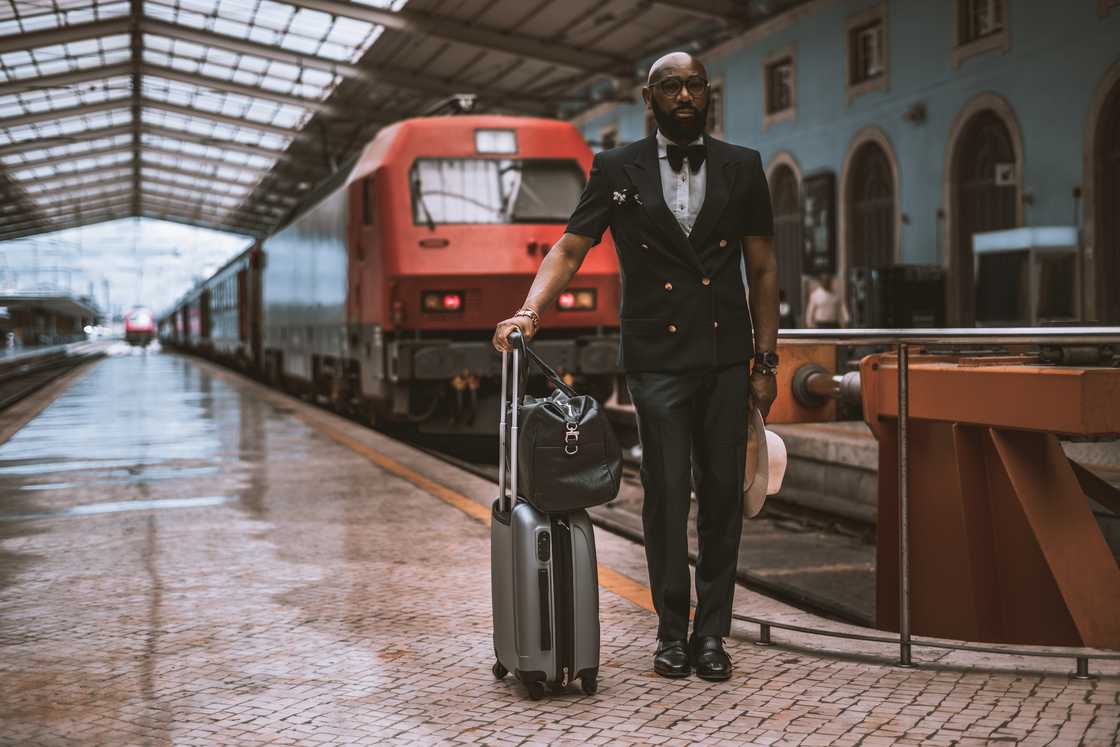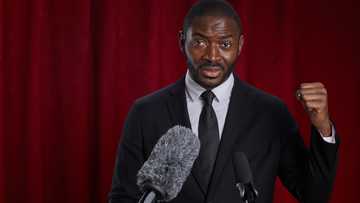I Lost My Grandmother and all Hope, But One Night In a Stranger's House Saved Me
I sat on the cold metal bench, clutching my backpack like it was the only steady thing left in my life. The departure board flickered uselessly above me, trains delayed, cancelled, rescheduled. The station was almost empty, humming with tired lights and vending machines.

Source: UGC
I told myself I would not cry. I was twenty-five, too old to fall apart in public. However, grief does not discriminate based on age. Three weeks ago, I buried my grandmother. Two days ago, I lost my job. Now I was on my way back home, feeling like failure had stamped itself across my forehead.
Stranded in a town I could not pronounce, with no money, almost no battery, and no plan, the tears came anyway. I felt small, foolish, and defeated.
That was when I saw him, an older man watching me quietly. Then he walked over, gentle and steady. "You alright there, son?" he asked.
I had no idea my life was about to change.
PAY ATTENTION: stay informed and follow us on Google News!
Before everything fell apart, I truly believed I was on track. I had just landed my first real job after months of applications and interviews: a marketing role. Not glamorous, but it paid rent and made me feel like I was finally stepping into adulthood.

Source: Getty Images
My grandmother celebrated the loudest.
"You see? I told you your time would come," she'd say, patting my cheek like I was still a child. She was my calm place. When life felt uncertain, she made it feel steady again.
Then she got sick.
In one month, she went from laughing in her garden to lying silently in a hospital bed. When she died, it felt like someone switched off the sun and forgot to turn it back on.
I still went to work, pretending I was fine. But grief does not clock in and out. It sits heavy, quietly bending you until you break. I missed deadlines. Forgot tasks. My boss called me "unfocused." Eventually, they let me go.
Losing her felt like heartbreak. Losing my job felt like more humiliation.

Source: Getty Images
My parents told me to come home and reset. But twenty-five is a strange age to fall apart. Old enough to feel ashamed, young enough to still need rescue, stubborn to hate asking for it.
I packed my things and told myself going home would be a reset, not a defeat. I clung to that thought as I boarded the train with more fear than luggage.
Halfway through the journey, the announcement came:
"All passengers must disembark. Next train tomorrow at 07:10."
Tomorrow.
As if life had not taken enough from me already.
No hotel money. No food. A dying phone battery.
So I sat in that tiny station, exhausted, broke, and quietly terrified that maybe life was not falling apart. It was revealing that I never had control to begin with.

Source: Getty Images
At first, I tried to look calm. Like a weary traveller, not a man quietly crumbling from the inside out. But grief and humiliation are not good actors.
I kept staring at the departure board, willing something to change.
It didn't.
I considered calling my parents, but the thought of hearing my mother's worried voice made my throat close. I was supposed to be strong. Independent. Capable. Instead, I was a grown adult stuck between failure and a vending machine that only accepted coins I did not have.
I tried to distract myself by scrolling through my phone, but the screen dimmed and died. Battery gone. I stared at the blank screen as if it had betrayed me.
My stomach rumbled loudly.
Wonderful.
Hungry and homeless for the night. The becoming-a-man chapter nobody warned me about.
That was when the older man appeared.

Source: Getty Images
After sitting down beside me, he unscrewed his thermos and poured tea into the little metal cup attached to the lid.
"You look like you could use something warm," he said.
I hesitated, pride bruised but hunger louder, then accepted.
The tea warmed my hands first, then my chest. It tasted like ginger and comfort.
We sat quietly for a while. Silence did not feel awkward with him. It felt safe.
Eventually, he spoke again.
"You waiting for someone?"
"No train until morning," I mumbled.
"Where you headed?"
"Home."
He nodded like he understood the weight behind that word.
"You look like someone who tried very hard to make it on their own."
I blinked. "How did you….?"
"Son, I've lived long enough to recognise that particular brand of disappointment. Life knocks you off your feet sometimes. Does not mean it is finished with you."
I swallowed hard.

Source: Getty Images
He stood and stretched.
"Well, I live ten minutes from here. Spare bedroom. Warm food. Fresh towels. You're welcome to stay the night if you want."
My brain screamed every cautionary tale my mother ever told me.
Never follow strangers.
Never go to unknown houses.
Crime documentaries do not start with tea and warmth for nothing.
"I appreciate it," I said quietly, "but I don't want to impose."
He chuckled softly.
"If you were imposing, I wouldn't offer. Besides, I would not sleep knowing someone's child was out here on a cold bench while I had a perfectly empty bed at home."
His words hit harder than kindness should.
Someone's child.
Someone who mattered.
Someone worth sheltering.
I exhaled slowly and stood.
"Alright."
His face softened with relief and welcome mixed.
"Good choice. Come on then. I'm Harold."
I shook his hand. "I'm Daniel."

Source: Getty Images
We walked through the quiet town. Moonlight brushed the rooftops, and street lamps flickered like they were tired, too.
His house was small but warm, with framed photographs and knitted cushions that whispered home.
He made dinner—rice and stew—and placed the plate in front of me.
"Eat," he said.
And I did. More gratefully than I wanted to admit.
Later, he handed me a spare T-shirt and pointed to the bathroom.
"Get some rest. Tomorrow will look better."
I wanted to believe him.
But that night, lying in a clean bed in a stranger's home, I wondered if hope could really grow in broken places.
Morning came with sunlight spilling through floral curtains and the smell of something frying in the kitchen. For a moment, I forgot where I was. Then memory returned, the bench, the tears, the kindness.

Source: Getty Images
Harold greeted me with eggs, toast, and tea.
"Good sleep?"
"Better than I've had in weeks."
He nodded. "Grief and stress make nights long and days heavy. You lost someone?"
I froze. How did Harold know?
"It's in your eyes," he said gently. "People who carry sorrow blink differently."
I told him about my grandmother. About my job. About moving back home, feeling like a failure.
To my surprise, my voice did not shake. Instead, it felt like opening a window in a room that had been closed too long.
He listened without interrupting.
When I finished, he leaned back, folded his arms, and spoke quietly.
"You think going home means going backwards. But sometimes going home is the bravest thing you can do. It means starting again. There is no shame in resetting your life. The only shame is refusing to rise when life knocks you down."

Source: Getty Images
I stared at my plate. Harold's words felt like something unclenching inside me.
"I just thought by twenty-five I'd be further along."
He smiled.
"Son, I was still figuring out how to be a man at forty. Life is not a race. It is a long walk. Some parts are uphill. Some through fog. Some under the sunshine. But the only thing you must do is keep walking."
That morning, he drove me back to the station. Before I stepped out, he pressed a folded note into my hand.
"For emergencies," he said. "Not because you need it. But because sometimes knowing you have something gets you through the day."
I did not want to accept it. Pride flared, but his kindness was not a handout. It was a lifeline.
"Thank you," I whispered.
He smiled gently.
"One day, you will do this for someone else. That is how the world keeps turning."

Source: Getty Images
I boarded the train, looked back at him, and waved. He lifted his hand once, then turned and walked away: quietly, like he wanted the moment to stay soft.

Read also
I Told Him About The Second Pregnancy And He Walked Away - The Letter Reminded Me I Had A Future
I never forgot him.
I carried his words and kindness like a secret lantern, glowing even on my darkest days.
Five years passed.
Life did what life sometimes does: surprised me.
I found a job. Then another. Then I decided to start my own business. It grew slowly, then steadily. I married the woman who believed in me when I barely believed in myself. We have two children now: loud, sticky-fingered joy machines who pull me toward a future instead of my past.
I became someone I once doubted I could be.
Last month, I learned the train route had changed again. And on a business trip, the train stopped in that same small town.
Five years later.
I felt something tug in my chest.

Source: Getty Images
When the train doors opened, I grabbed my bag and stepped out. Something in me needed to go back. To find Har. To say thank you properly.

Read also
She Walked Out of Handover in Tears — He Called Her Back, Fixed the Remark, and Drew a Plan
I asked around the station.
"Do you know an elderly man named Harold? White hair, kind smile, lives near here?"
A security guard pointed me to a bakery two streets over. "Ask Mary," he said. "She knows everyone."
Mary did not ask many questions. She just smiled and gave me an address.
"That man has a heart made of warm bread," she said. "Good soul."
I walked through quiet streets until I reached a brick house with a blue door. I knocked.
He opened it slowly, blinking like he was trying to place me.
"Can I help you?"
I smiled. "It's Daniel. The stranded boy from the station a few years ago."
His eyes widened. Slowly, recognition dawned like morning light.
"I remember," he said softly. "Come in."

Source: Getty Images
Inside, I told him about my life. My wife. My children. My business. My healing.
He listened, brow furrowing, then relaxing into a proud smile I did not know I needed.

Read also
She Meets Him at the Bagels — He Installs Spyware; She Finds a Studio and Reclaims Her Life
"You look well," he said. "You stood up again. That matters."
I pressed an envelope into his hand, photos of my family and a letter: Thank you for seeing hope in a stranger.
His eyes glistened.
Kindness, I realised, does not age. It only grows.
Life breaks all of us at some point.
Sometimes loudly, sometimes quietly, sometimes slowly enough that you do not realise the cracks until everything hurts when you breathe. Sometimes it happens in the space between a funeral and a termination letter, when you are already kneeling and life gives one more push.

Source: Getty Images
When I was twenty-five, I thought losing my job meant losing my future. I thought going home meant admitting defeat. I believed grief made me weak. I assumed strong people pushed through pain without stumbling.
But weakness is not falling.
Weakness is refusing to stand again when the ground finally steadies beneath you.
One night in a forgotten train station, a stranger gave me shelter, food, warmth, and something far rarer: perspective. He gave me proof that good people still exist. That compassion still finds us, even when we feel unworthy.
He reminded me that: starting again is not failure; resting is not quitting; accepting help is not a weakness; kindness from strangers is evidence that the world still breathes gently.
And life, in its quiet mercy, gave me the chance to return years later and say thank you. To hand back gratitude where someone once handed me hope.

Source: Getty Images
We are all passing through someone else's story. Sometimes we are the ones who need a hand. Sometimes we are the ones called to offer one.
So I ask you:
Who held you when life felt too heavy?
Who gave you softness when you were breaking?
And what small act can you offer somebody today, the kind that costs little but might rewrite a future?
Because sometimes, the greatest miracles look like a hot meal, a spare bed, and a gentle voice that says:
"You will rise again."
This story is inspired by the real experiences of our readers. We believe that every story carries a lesson that can bring light to others. To protect everyone's privacy, our editors may change names, locations, and certain details while keeping the heart of the story true. Images are for illustration only. If you'd like to share your own experience, please contact us via email.
PAY ATTENTION: Follow Briefly News on Twitter and never miss the hottest topics! Find us at @brieflyza!
Source: YEN.com.gh









